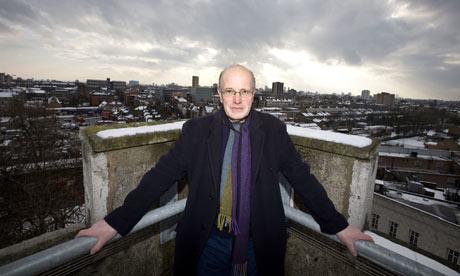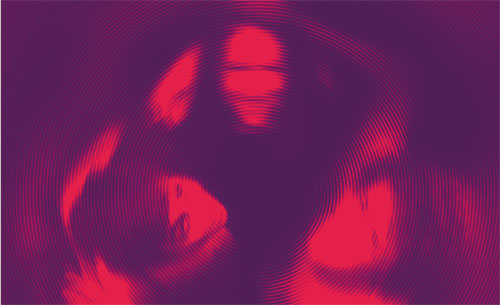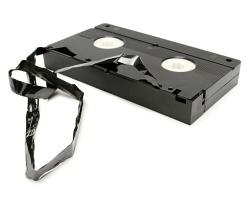
Activating Brixton Art Gallery, 1983-86: Archives and Memories
Saturday 5th June 2010, 11am-4pm
Westminster Forum, University of Westminster, 32 Wells street, London W1T 3UW
A collaboration between BACA (Brixton Artists Collective Archives) group, and the 198 Contemporary Arts and Learning, the project 50 Reasons to Celebrate, Brixton Art Gallery – 1983-86, Archiving Brixton Art Gallery & Artists Collective (2010-2012) will be officially launched in Autumn 2010. BACA consists of five individual and original members of the Brixton Artists Collective: Teri Bullen, Guy Burch, Françoise Dupré, Rita Keegan, and the IMCC’s Stefan Szczelkun. They were part of a significant group of artists, the Brixton Artists Collective, and were instrumental in the foundation, development and running of the Brixton Art Gallery.
The ‘Activating Brixton Art Gallery, 1983-86: Archives and Memories’ symposium at Westminster is the first of two university-based symposia that will contribute to the Project’s research and development in relation to content, context, process and dissemination. An invited group will discuss the Brixton Art Gallery & Artists Collective’s socio-political and artistic concerns and contemporary relevance.
Speakers include: Paul Dash, Department of Educational Studies, Goldsmiths; Adrian Glew, Tate Archive; Althea Greenan, curator Women’s Art Library, Goldsmiths; Ajamu, artist; Sally Mould, Brixton Art Gallery exhibiting artist and Copyart.
The 50 Reasons to Celebrate, Brixton Art Gallery – 1983-86 project promotes and celebrates the achievement and legacy of the Brixton Art Gallery & Artists Collective and provides contexts and opportunities for the re-opening of existing archives and for future archiving of the Gallery and its Collective. The project incorporates public events and participation including a postcard project, an oral history project, a community archiving project, community-based workshops, gallery talks, symposia, a publication and a major archiving exhibition at the 198 Contemporary Arts and Learning (winter 2011). At the end of the Project, Brixton Art Gallery & Artists Collective’s old and new archives will be transferred and donated to Tate Archive for safekeeping and for broader public access (Spring 2012). Lambeth Archives, Tate Archive, Young People’s Programmes, Tate Britain and the Women’s Art Library, Goldsmiths, University of London have confirmed their support. Artist Studio Company, Autograph ABP, Birmingham City University, London School of Economics, Hall Carpenter Archive and the University of Westminster are also confirmed partners.
For further details about the syposium, please contact Stefan Szczelkun at: S.Szczelkun@westminster.ac.uk
For more information about the Brixton Art Gallery and its Collective and first 50 exhibitions please visit the website set up and developed by Brixton Art Gallery & Artists Collective co-founder Andrew Hurman: http://brixton50.co.uk
Ballardian Architecture
Tagged as Architecture, Ballard, technology, Urban

David Cunningham, Deputy Director of the IMCC, is, along with John Gray and Nic Clear, one of the participants in the symposium Ballardian Architecture: Inner and Outer Space to be held at the Royal Academy of Arts on Saturday 15th May, 2-5pm. The event will trace several themes in Ballard’s literary analysis of the contemporary built environment, including the concept of spectacle and role of the media in contemporary society, and how Ballard’s fascination with so-called “invisible literatures”, such as scientific journals, technical manuals and advertising copy, can be seen as a literary counterpart to pop art and the “brutalist” aesthetic of modernity.
Tickets: £25/£16 reductions* (includes a drink)
Further details here.
The Hole in Time: Full Programme
Tagged as archive, radical philosophy, Theory, time

The Hole in Time: German-Jewish Political Philosophy and the Archive
Date: Wednesday 23rd June – Thursday 24th June 2010, 9.30-6.00
Venue: Portland Hall, University of Westminster, 4-16 Little Titchfield Street, London W1W 7UW
Admission is free, but, since places are limited, please contact the organisers to book a place by the 17th of June at theholeintime@live.com
Wednesday 23rd of June
9.30 – 10.00 Introduction: Sas Mays (Westminster), Leena Petersen (Sussex)
10.00 – 12.00 Panel 1: Modern Crisis and the History of the Present – Part 1
Nicholas Lambrianou (Birkbeck): ‘Figures of Interruption: Philosophical Dramas of Temporality and History in Benjamin and Rosenzweig’
Sami Khatib (FU Berlin): ‘The Messianic and the Archive: Walter Benjamin’s “Politics of Time”’
Leena Petersen (Sussex): ‘Messianic Libertarianism and Linguistic Philosophies of History in Benjamin and Related Writings of His Time’
Chair: Christian Wiese (Sussex)
1.00 – 3.00 Panel 2: Poetics of Temporality
Howard Caygill (Goldsmiths): ‘Paul Celan’s Visual Archive’
Nitzan Lebovic (Tel Aviv / Sussex): ‘Paul Celan: Language of Loss at the Heart of Time’
Shela Sheikh (Goldsmiths): ‘The Wounded Archive: Derrida Reading Celan’
Chair: Keston Sutherland (Sussex)
3.30 – 5.30 Panel 3: The Temporality of Archives – Part 1
Elina Staikou (Goldsmiths): ‘Vigil of the Archive: On Derrida Dreaming Benjamin’
Rebecca Dolgoy (Montreal / FU Berlin): ‘The Work of Art as Archive: Examining Adorno’s Zeitkern as Time Capsule’
Tommaso Speccher (FU Berlin): ‘The Hole in Space: Fragmenting and Re-piecing the Archive between Walter Benjamin and Daniel Libeskind’
Chair: John Roberts (Wolverhampton)
Thursday 24th of June
10.00 – 12.00 Panel 4: Modern Crisis and the History of the Present – Part 2
Reut Paz (Humboldt University Berlin): ‘The Legal Transcendentalism of Hans Kelsen as a Hole in Time’
Birte Loeschenkohl (Frankfurt): ‘Kairos: The Right and Opportune Moment as a Caesura in and of Time’
Veronika Koever (Queen Mary): ‘Reversing the Irreversible: Jean Améry’s “ressentiments” and the Moralisation of Time’
Chair: Leena Petersen (Sussex)
1.00 – 3.00 Panel 5: The External Archive
Andy Fisher (Goldsmiths): ‘”Quiet Life”: History, Pathos and the Archive in Ernst Friedrich’s Kriege dem Krieg’
Manu Luksch (London): ‘Moonwalking in Real Time’
Chair: Esther Leslie (Birkbeck)
3.30 – 5.30 Panel 6: The Temporality of Archives – Part 2
David Cunningham (Westminster): ‘Abstract Times: Benjamin, Kafka and the Modernism of Tradition’
Matthew Charles (Middlesex): ‘The Snow Line of the Archive: Walter Benjamin On the Trail of Old Letters’
Andrew McGettigan (Central Saint Martins College of Art & Design, London): ‘The Archive and the Idea: Walter Benjamin’s Experiences of Time’
Chair: Nitzan Lebovic (Tel Aviv/Sussex)
Organised by Sas Mays (Westminster), and Leena Petersen and Nitzan Leibovic (Sussex), as part of the research project ‘Archiving Cultures’ at the IMCC.
Route have posted a video up on their YouTube channel of the launch, back in December, for Michael Nath’s superb debut novel La Rochelle at Westminster. Watch it here. There’s also an interview with Michael on the Route website here.
There have already been excellent reviews for La Rochelle – described by Michael Wood as stylish, very funny, discreetly surprising’ – in both The Independent and the Big Issue. Buy the novel at: www.route-online.com
Old Media/New Work: Speakers
Tagged as art, cinema, magic, technology
Old Media / New Work: Obsolete Technologies & Contemporary Art
Saturday 1st May 2010, 9am-6pm
Portland Hall, University of Westminster, 4-16 Little Titchfield St, London W1W 7UW
Contemporary art shows renewed interest in ‘lost’, ‘obsolete’, and ‘archaic’ visual media forms and the illusion-producing processes of the past—for example: the camera obscura, the magic lantern, stereoscopy, Victorian stage illusion, shadowgraphy, optical toys, the panorama and stylised period representations such as the imagery of spiritualism, automatic writing and early photographic techniques. A platform for engagement with such ‘old media’ has been provided by the Magic Lantern Society’s popular public lecture series, Professor Pepper’s Ghost, at the University of Westminster this year. As a further development, the conference ‘Old Media / New Work’ will concentrate on art and artists working with or around such ‘lost’ practices, in order to show, discuss, and explore such work in context of contemporary relevance and future possibilities.
Speakers:
Madi Boyd (Independent): ‘Pepper’s Ghost for the 21st Century’
Ignaz Cassar (Leeds / Nottingham Trent): ‘The Image of, or in, Sublation’
Mark Ferelli (Independent): ‘Michael Reeves Directs’
Mark Jackson (IMT Gallery): ‘Audiobooks of the Dead: William Burroughs & Konstantīns Raudive’
Ben Judd (Independent): ‘Magic, Belief, and Immersion’
Naomi Kashiwagi (Independent): ‘Reinventing the Reel: Reclaiming the Everyday’
Wiebke Leister (LCC): ‘Towards an Iconography of the White Face’
Olivia Plender (Independent): ‘A Stellar Key to the Summerland’
Peter Ride (Westminster): ‘When Everything Old is New Again’
Aura Satz (London Consortium): ‘Sound Seam: Gramophone Grooves & Primal Sound’
Dan Smith (Chelsea): ‘October Outmoded: Utopian Failure & Technological Possibility’
Simon Warner (Independent): ‘Isolating V5: Towards a Human Zoetrope’
Entrance is free but, as places are numbered, please contact the organisers, Sas Mays (IMCC) and Mervyn Heard (Magic Lantern Society), for a place: oldmedianewwork@live.com
Due to illness Nick Hubble has unfortunately had to cancel his seminar on ‘Naomi Mitchison: From Intermodernism to Science Fiction’ that was scheduled to take place at Westminster this Wednesday 14th at 1.15pm.
Apologies, and we will of course re-schedule Nick’s paper for a future date some time soon.
Archigram Archival Project
Tagged as Archigram, Architecture, the avant-garde, Urban

Congratulations to our colleagues in Architecture. The magnificent Archigram Archival Project, some four years in the making, launches at Westminster’s Regent Street building on April 19th. Days of online browsing lie ahead.
Once it’s up and running on the 19th, the website will be here: http://archigram.westminster.ac.uk/
The Modernist Muse: Call for Papers
Tagged as art, Modernism, the avant-garde

Westminster English Colloquium #15
“No Hawkers: No Models”: The Vicissitudes of the Modernist Muse
Saturday 19th June 2010, The Pavilion, University of Westminster, 101 New Cavendish Street, London W1W
Keynote speaker: Jane Goldman (University of Glasgow)
In the spirit of Rhythm magazine’s (1911-1913) declared editorial remit – to cover the widest ‘manifestations of modernism in every province of art’ – this conference will seek to expand those categories structured round the hegemony of painting, sculpture, and literature, by looking especially at what might be considered gestural modernism, that is the experimental social aesthetics, or self-fashioning which vied with bourgeois norms. The impact of modern life on the founding processes of subjectivity was expressed in newly considered metropolitan modes of the material of identity – dress, interior décor, dance styles, cabaret/performance, photography, cinema, music, and sex. While modernist masquerades of virile masculinity were adopted by Augustus John and Wyndham Lewis, the swaggering style of the gipsy, or the apache, required emancipated women to support it. This conference aims to explore the especial difficulties and excitements of negotiation undergone by women in pre-WW1 London in their cultural positioning as artist, muse or model, or as was often the case, in these interchangeable roles.
Papers are invited on unnoticed or sidelined texts and the ways that they explore the artistic self, both structured and structuring, and that look at how modernist women produced their artistic identity or ‘enacted biography’. Possible subjects for papers: Vorticist artists sidelined by their male contemporaries: Helen Saunders, Jessica Dismorr, Kate Lechmere, and others; Jean Rhys, Katherine Mansfield and Mary Butts, who fictionalised their experiences as variously chorus girl, artist’s model, film extra, witch, dope addict and prostitute; the memoirs and anecdotes of ‘celebrity’ artists’ models, e.g. Dolores, Puma (Minnie Lucy Channing), Betty May, Viva (Booth) King, Euphemia Lamb, Lillian Shelley; the work of dancers such as Margaret Morris, Gertrude Hoffmann, Alice Mayes, Lydia Sokolova …
Proposals of around 300 words should be sent by no later than May 1st to Anne Witchard: a.witchard@westminster.ac.uk
Hole in Time workshop: speakers announced
Tagged as Europe, radical philosophy, Theory, time

The Hole in Time: German-Jewish Political Philosophy and the Archive
Date: Wednesday 23rd June – Thursday 24th June 2010, 9.30-6.00
Venue: Portland Hall, University of Westminster, 4-16 Little Titchfield Street, London W1W 7UW
Left discussions of politics and history owe much to German-Jewish theories of temporality that emerged in response to the political crises of twentieth-century Europe; such theories helped to problematize both the life of the individual and how the state perceived it. The workshop ‘German-Jewish Political Philosophy and the Archive’ brings together interested parties to engage with the data collection and archival dimensions of German-Jewish conceptions of temporality, history and crisis, as well as the German-French dialogue in critical philosophy.
Speakers: Howard Caygill (Goldsmiths, London); Matthew Charles (Middlesex); David Cunningham (IMCC, Westminster); Rebecca Dolgoy (Montreal/ FU Berlin); Andrew Fisher (Goldsmiths, London); Sami Khatib (FU Berlin); Veronika Koever (Queen Mary, London); Nicholas Lambrianou (Birkbeck, London); Nitzan Lebovic (Tel Aviv/Sussex); Birte Loeschenkohl (Frankfurt); Manu Luksch (London); Andrew McGettigan (University of the Arts, London); Reut Yael Paz (RishonLeZion); Silvia Richter (Heidelberg); Shela Sheikh (Goldsmiths, London); Tommaso Speccher (FU Berlin); Elina Staikou (Goldsmiths, London)
Chairs: Paul Betts, Christian Wiese, Esther Leslie, Sas Mays, Leena Petersen, Keston Sutherland
Co-organised by the IMCC and Centre for German-Jewish Studies, University of Sussex
Apocalypse and its Discontents: Call for Papers
Tagged as apocalypse, science fiction, technology, The Future

Westminster English Colloquium #16: Apocalypse and its Discontents
Saturday 11th December 2010, University of Westminster, London
Keynote Speaker: Professor Adam Roberts (Royal Holloway)
Whereas visions of destruction and fantasies of the end have always haunted humankind, the modern period in particular has been increasingly characterised by a mixed sense of concern and fascination with the apocalypse, and even more so during the twentieth century. Today we are surrounded by scenarios of imminent destruction and annihilation, by politicians, scientists, religious groups, and writers, among others. This conference aims to explore and question the widespread appeal of the apocalypse. We are particularly interested in narratives that either challenge or offer alternative responses to apocalypse.
The organisers are seeking interdisciplinary papers exploring cultural responses to apocalypse, its discourses and counter-discourses. Topics may include (but are not restricted to): Anti-Apocalypse, Counter-Apocalypse, Ironic Apocalypse; Utopia, Redemption and Rebirth; Commodifying the Apocalypse; Death Tourism and Disaster Capitalism; Media Events theory: Disaster and the Media; Apocalypse and Everyday Life; The Age of Terror; Global Warming and Its Denial; Disaster Fiction/Movie; History as Apocalypse; Trauma theory; Viral Terrorism; Endings and Aftermaths; 2012; Technology and Mass Destruction.
Please email 500-word abstracts and brief bio to all conference organisers by 1 September 2010:
Monica Germanà: m.germana@westminster.ac.uk
Aris Mousoutzanis: a.mousoutzanis@kingston.ac.uk
Christopher Daley: c.daley@my.westminster.ac.uk
Journal of Visual Culture: The Obama Issue: FREE content
Tagged as media, politics, visual culture
FREE content: Entire Obama Issue of ‘Journal of Visual Culture’, including contributions by Dora Apel, Lauren Berlant, Lisa Cartwright, Anna Everett, Raimi Gbadamosi, Curtis Marez, Nicholas Mirzoeff, W.J.T. Mitchell, Shawn Michelle Smith, Gayatri Spivak, Julian Stallabrass, Marita Sturken, and many, many more.
To access go to:
http://vcu.sagepub.com/current.dtl
Click on link by each article marked ‘PDF’.
Download, read, enjoy, circulate.
Popular Matters at the Whitechapel Salon
Tagged as art, matter, pop, technology
%201991.jpg)
The Whitechapel Salon: Matter Matters I: Popular Matters
Thursday 13th May, 7pm
Study Studio, Whitechapel Gallery, London E1 7QX
The Whitechapel Salon is back! Spanning art, architecture, performance and sustainability, the forthcoming year-long series of four Salon discussions focus on the matter of ‘matter’ – its nature, substance and the productive forces that govern it. Chris Horrocks, Principal Lecturer, Kingston University and Julian Stallabrass, Reader, Courtauld Institute of Art consider Popular Matters including mass culture, vernacular photography, Web 2.0 and user-generated content.
Book now to avoid disappointment! Book your ticket here.
Tickets: £8/£6 (includes free glass of wine)
From Intermodernism to Science Fiction
Tagged as feminism, Modernism, science fiction

Wednesday 14th April, 1.15-2.30pm
Room 106, University of Westminster, 32-38 Wells Street, W1T 3UW
Nick Hubble (Brunel University)
‘Naomi Mitchison: From Intermodernism to Science Fiction (via Mass-Observation)’
From her 1920s novels, influenced by Lawrence but aimed at the audience of Wells, to her subsequent deployment of modernist techniques for political ends, Naomi Mitchison may be considered a key intermodern writer. Her literary output during the 1930s – The Corn King and the Spring Queen (1931), Beyond This Limit (1934; a feminist fantasy illustrated by Wyndham Lewis), We Have Been Warned (1935), The Moral Basis of Politics (1938) and The Blood of the Martyrs (1939) – is comparable with Orwell’s. Her relentless pursuit of the ‘just society’, free from gender-based and sexual repression, made her a controversial figure even in that controversial decade. And her close literary associates of that decade – including Auden, Aldous Huxley, Olaf Stapledon, Stevie Smith, Wyndham Lewis and Walter Greenwood – suggest different ways of thinking about literary networks and cultural history in general. She was also a friend and supporter of Tom Harrisson and Mass-Observation, for whom she kept a wartime diary. Nick Hubble’s paper analyses this intermodern work and investigates how it relates to Memoirs of a Spacewoman (1962), a forerunner of the 1970s feminist utopian science fiction of writers such as Ursula Le Guin, Marge Piercy and Joanna Russ.
Free to all.

Thursday 22nd April, 6pm
The Boardroom, University of Westminster, 309 Regent Street, W1B 2UW
In the final event in the 21st Century London series of talks at Westminster Rachel Lichtenstein, author of Brick Lane and (with Iain Sinclair) Rodinsky’s Room, and Visiting Fellow at the IMCC, will be speaking at Regent Street.
For more information, please email Monica Germana at m.germana@westminster.ac.uk. Events are free of charge, but booking is essential: please email Sharon Sinclair at sinclas@wmin.ac.uk to book a place.

To book email info@instituteformodern.co.uk or download the booking form
Date: Thursday 27th May 2010 – Saturday 29th May 2010
Venue: The Old Cinema, University of Westminster, 309 Regent Street, London
Cost: £50/25 concessions, booking essential
Thursday 27th May 2010
12:00 Registration
1:00-2:15 Session 1
W.J.T. Mitchell (English and Art History, University of Chicago)
2:15-4:15 Session 2 Roundtable: Education
Mark Dunhill (School of Art, Central Saint Martins College)
William Cobbing (Wimbledon College of Art)
Joanne Morra (School of Art, Central Saint Martins College)
Adrian Rifkin (Art Writing, Goldsmiths, University of London)
Joy Sleeman (History and Theory of Art, Slade School of Fine Art)
Victoria Walsh (Education and Interpretation, Tate Britain)
4:45-6:30 Session 3
Gary Hall (Media and Performing Arts, Coventry University)
Joanna Zylinska (Media and Communications, Goldsmiths, University of London)
6:30-8:30: Reception
Friday 28th May 2010
10:00-11:15 Session 4
Keith Moxey (Art History and Archaeology, Columbia)
11:15-1:00 Session 5
Divya P. Tolia-Kelly (Geography, Durham University)
David Cunningham (Cultural & Critical Studies, University of Westminster);
1:00-2:00 Lunch (Not provided)
2:00-4:00 Session 6 Roundtable: Design Studies – Visual Studies – Cultural Studies
Glen Adamson (Design/Craft, RCA/V&A)
Sarah Chaplin (Architectural Humanities, Greenwich University)
Elizabeth Guffey (Design, SUNY, Purchase)
Raiford Guins (Digital Cultural Studies, SUNY, Stony Brook)
Guy Julier (Design, Leeds Metropolitan University)
Penny Sparke (Design History, Kingston University)
4:30-5:45 Session 7
Lisa Cartwright (Communication, UC, San Diego)
Saturday 29th May 2010
10:30-11:45 Session 8
Nicholas Mirzoeff (Media, Culture, and Communication, New York University)
11:45-1:30 Session 9
Esther Leslie (Political Aesthetics, Birkbeck, University of London)
Esther Gabara (Romance Studies, and Art, Art History, & Visual Studies, Duke University)
1:30-2:30 Lunch (Not provided)
2:30-4:30 Session 10 Roundtable: The Future Institution: An International Association for Visual Culture Studies?
Michael Ann Holly (The Clark Art Institute, Williamstown)
Jeremy Gilbert (University of East London)
Stephen Melville (Art/Aesthetics/Philosophy, Ohio State University)
Griselda Pollock (Art Histories/Cultural Studies, University of Leeds)
Marquard Smith (Visual Culture Studies, University of Westminster)
4:30 Conference Ends
Organizers: Nicholas Mirzoeff (New York University), Joanne Morra (University of the Arts London), Marquard Smith (University of Westminster, London)

Thursday 11th March, 6pm
The Boardroom, University of Westminster, 309 Regent Street, W1B 2UW
Following a successful first event with urban visionary Iain Sinclair, in the second of a new series of talks at Westminster entitled 21st Century London, exploring the challenges and opportunities the city offers to the contemporary writer, Toby Litt will be speaking at Regent Street. Toby was winner of the 2009 Manchester Fiction Prize, and his many novels include Corpsing (2000), Ghost Story (2004) and Hospital (2007). Future speakers will be Diran Adebayo (March 18) and visiting research fellow at the Institute Rachel Lichtenstein (April 22).
For more information, please email Monica Germana at m.germana@westminster.ac.uk. Events are free of charge, but booking is essential: please email Sharon Sinclair at sinclas@wmin.ac.uk to book a place.
War in Liverpool
Tagged as art, cinema, thomson, war

Thomson & Craighead will be showing ‘A Short Film about War’ as an installation for the first time at the MyWar exhibition at the Foundation for Art & Creative Technology (FACT) in Liverpool, running from March 12 – May 30 2010. It will appear alongside works by Phil Collins, Renzo Martens, Milica Tomic, Knowbotic Research, Harun Farocki, Sarah Vanagt, Joseph Delappe, Oliver Laric, Dunne & Raby, Harrell Fletcher and SWAMP.
Animate Projects have also commissioned Lisa LeFeuvre to write a contextual essay about the piece, which is available on their website to read and download as a diffusion book alongside a streaming version of the work. Read Lisa’s essay here.
Wednesday 10th March, 1.15-2.30pm
Room 106, University of Westminster, 32-38 Wells Street, W1T 3UW
Andrew Smith (University of Glamorgan)
‘Haunted Houses and History: Locating the Anglo-American in Henry James’
Free to all.
Old Media/New Work: Call for Participants
Tagged as art, cinema, gothic, magic, technology
Old Media / New Work: Obsolete Technologies & Contemporary Art
Saturday 1st May 2010, University of Westminster, London
Contemporary art shows renewed interest in ‘lost’, ‘obsolete’, and ‘archaic’ visual media forms and the illusion-producing processes of the past—for example: the camera obscura, the magic lantern, stereoscopy, Victorian stage illusion, shadowgraphy, optical toys, the panorama and stylised period representations such as the imagery of spiritualism, automatic writing, audio-technologies and early photographic techniques.
Co-organised by the Magic Lantern Society and the IMCC—in the wake of 2009-10’s popular public lecture series, Professor Pepper’s Ghost, at the University of Westminster—Old Media / New Work will provide a forum at which artists working with or around such ‘lost’ concepts and technologies can come together to show, discuss, and explore their own work in context of these past techniques, their contemporary relevance, and their future possibilities. The conference will also be documented and continued by a new WordPress website that will allow participants to upload images, texts and comments.
Confirmed participants include: Jonathan Allen; Geoff Coupland; Mark Ferelli; Mark Jackson; Juliette Kristensen; Susan MacWilliam; Olivia Plender; Joseph Ramirez; Aura Satz; Dan Smith; Simon Warner; Isabel White
The organisers, Mervyn Heard and Sas Mays, welcome participation from established practitioners, as well as up-and-coming artists and researchers and specialists in the field. Interested parties should send a short (250-word) description of their topic and their CV, by 14th March 2010, to: OldMediaNewWork@live.com
Iain Sinclair talk
Tagged as Literature, London, Sinclair, Urban

Thursday 4th March, 6pm
The Boardroom, University of Westminster, 309 Regent Street, W1B 2UW
In the first of a new series of talks at Westminster entitled 21st Century London, exploring the challenges and opportunities the city offers to the contemporary writer, Iain Sinclair will be in conversation with David Cunningham, Deputy Director of the IMCC. Future speakers will be Toby Litt (March 11), Diran Adebayo (March 18) and visiting research fellow at the Institute Rachel Lichtenstein (April 22).
For more information, please email Monica Germana at m.germana@westminster.ac.uk. Events are free of charge, but booking is essential: please email Sharon Sinclair at sinclas@wmin.ac.uk to book a place.


The Institute for Modern and Contemporary Culture
University of Westminster Department of English, Linguistics and Cultural Studies
32-38 Wells Street, London W1T 3UW. United Kingdom.




